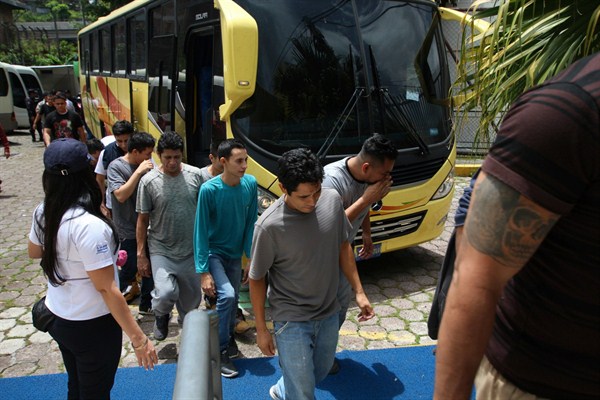Editor’s Note: This story was a Finalist for a 2019 Livingston Award, for excellence in international reporting. In July 2019, it also received an Honorable Mention by the National Press Club for the Edwin M. Hood Award for Diplomatic Correspondence, which recognizes excellence in reporting on diplomatic and foreign policy issues.
SAN SALVADOR—At around 2 a.m. on a Sunday this past May, Ricardo Canenguez sent his girlfriend, Damaris Perez, a text message with a license plate number. The plate belonged to the car of a police officer who, Canenguez said, had harassed him—and struck him—for no apparent reason while he was out at a bar that night.
The 40-year-old Canenguez spent most of his childhood and adolescence in Los Angeles, but he had been living in his native El Salvador since being deported in 2001. He had tattoos all over his arms, something many Salvadorans associate with street gangs. For this reason, he had frequent run-ins with the police, Perez recalls.

